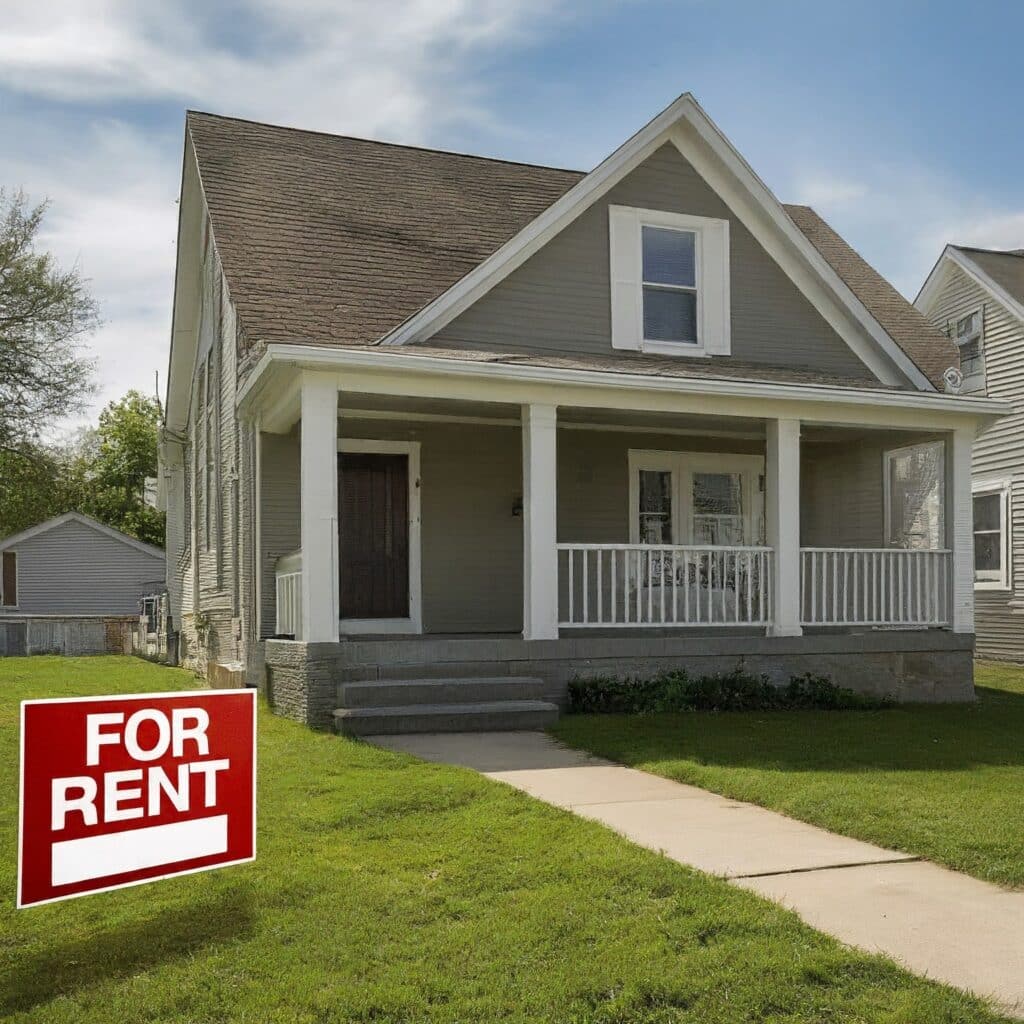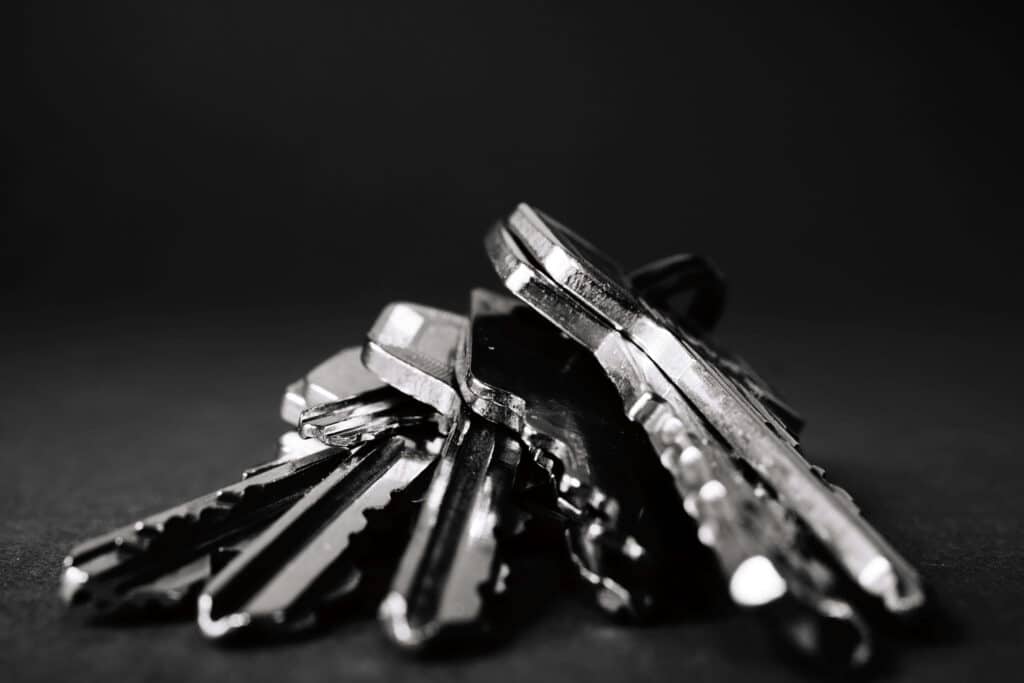The time between a tenant moving out and a new tenant moving in is precious for landlords. It must be used to its maximum potential to successfully execute move-out procedures and prepare the rental for the incoming tenant.

Whether there are three days or three weeks between tenants – the shorter, the better in most cases – the way landlords handle the move-out procedures sets the tone for this critical period.
Whether you own a handful of rental properties in California or are experiencing the end of your first lease with a tenant, we’re diving into how you can improve rental property move-out procedures to ensure a smooth transition between tenants.
The Importance of Move-Out Procedures
Every landlord handles the move-out process differently. Some simply take the keys from the tenant, return the security deposit (or a portion), and call it a day. Others have written out procedures that are followed to a t.
Creating a checklist of things to do during the move-out process will optimally use the precious time between tenants and ensure everything is completed correctly and swiftly.
Ways to Improve Rental Property Move-Out Procedures
Following guidelines and procedures takes the stress out of the move-out process and ensures both the landlord and tenant are on the same page.
Establish Move-Out Notice Ahead of Time
The move-out process actually begins when the tenant first moves in.
When a new tenant signs a lease, they are agreeing to notify the landlord that they will move out of the rental a specified number of days before the lease term ends.
In California, month-to-month renters must provide at least 30 days’ notice. Annual renters or renters without a lease term end date must abide by the notice period agreed upon in the lease. Usually, landlords require between 30 and 90 days’ notice.
A written notice to terminate the lease agreement is what sets the move-out process in motion.
Schedule Move-Out Inspections
After receiving the move-out notice from your tenant, schedule move-out inspections.
There should be two move-out inspections done during the process. The first inspection should take place about a week before the move-out. This allows the tenant time to make any minor repairs necessary and fully understand the expected condition of the property when they move out.
The second inspection should take place on the move-out day. Landlords will walk through the property with their tenants and identify issues that the security deposit may have to cover.
Collect Keys and Change Locks
During the move-out day inspection is the landlord’s opportunity to collect any and all keys the tenants received when they moved in.
It’s also best practice to have the locks changed between tenants for security. Even if the previous tenants were responsible and kind, landlords could be held liable if they decided to reenter the property after their lease ends.

Prepare the Rental for New Tenants
Once the tenant moves out, landlords must prep the apartment for a new tenant.
This includes having it professionally cleaned, repainted, and repairs made if necessary. Usually, landlords choose to hire professional services to complete these tasks. If this is the case, they should schedule these services when they receive the move-out notice to ensure availability.
Landlords should also make sure all appliances are functional, check doors and windows, and replace smoke detector batteries during this time.
Return Security Deposit
In California, landlords have 21 days to return security deposits or provide itemized lists of expenses the security deposit was used towards.
As per California law, landlords may use security deposits for the following expenses:
- Cleaning the property
- Repair damage other than wear and tear
- Restoring or replacing furniture, keys, etc. (if stated in the lease)
Landlords should collect a forwarding address from the tenants on the move-out day so they can mail the security deposit back.
Keep an Open Line of Communication
From the beginning of the landlord-tenant relationship, there should be an open line of communication. Landlords should prioritize making their tenants feel comfortable contacting them with questions or maintenance requests.
Cultivating a respectful and even friendly, yet professional, relationship between landlords and tenants can go a long way when it comes to upholding the lease agreement and improving move-out procedures.
Provide a Move-Out Checklist
The most common obstacles in move-out procedures are miscommunication and misaligned expectations.
When a tenant notifies the landlord they plan to end their lease, the landlord should provide a document or checklist to the tenant explaining the move-out procedures.
This document should detail exactly what is expected of the tenant during the move-out process, the move-out inspections, when the security deposit will be returned, and more.
A simple document that the tenant can keep and refer back to as they pack and prepare to move out can be helpful in keeping that line of communication open and avoiding miscommunications.

Increase Tenant Retention, Reduce Vacancy Rates, and Improve Move-Out Procedures with Lotus Property Services
A landlord’s main goal is to maximize their ROI while boosting rental income. One way to do that is by improving move-out procedures to reduce vacancy rates.
But, there’s an even better way to achieve these goals – increase tenant retention.
When a tenant decides to stay and renew their lease, landlords don’t have to go through a move-out procedure or spend money to replace the tenant.
There is no better and easier way to increase tenant retention, reduce vacancy rates, and improve move-out procedures than by working with a property management company like Lotus Property Services.
As San Gabriel Valley’s leading property management company, our goal is to help landlords achieve their financial and investment goals with their California rental properties.
Our team of real estate professionals is prepared to create long-lasting and effective procedures, including move-in and move-out, while also prioritizing retaining tenants to maximize our owners’ ROI.
If you found this article helpful, make sure to read How to Find High Quality Tenants in a Competitive Market next!

